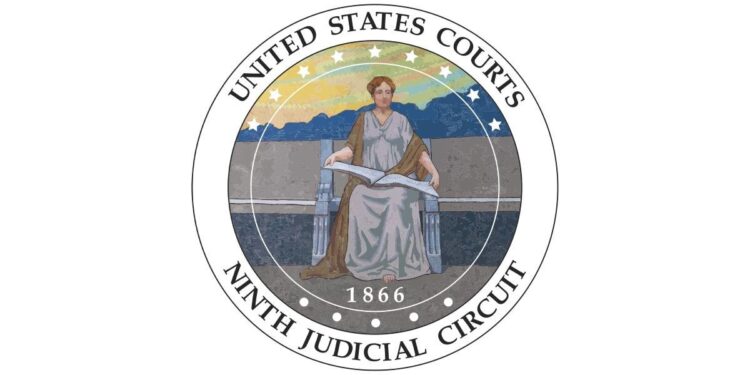In many cases, a party needs to offer expert testimony to prove its case. Before such testimony can be presented to a jury, however, it must get past the “gatekeeper”: the judge. But what happens when a judge decides to abdicate his or her gatekeeper role? The Ninth Circuit confronted this question in United States v. Mario Ruvalcaba-Garcia, No. 17-50288, 2019 WL 2063373, at *1 (9th Cir. May 10, 2019). The Court held that a district judge commits automatic error when he or she fails to perform the gatekeeper role. Nevertheless, the Court held that such an error can nevertheless be harmless and was so in the case before it.
A. Rule 702 and the Judge’s Role as Gatekeeper
In Daubert v. Merrell Dow Pharmaceuticals, Inc., 509 U.S. 579 (1993), the Supreme Court tasked trial judges with the responsibility of acting as “gatekeepers” with respect to expert testimony. As gatekeepers, the judges are to ensure that, before a party presents any expert testimony to the jury, the judge has deemed the testimony to be both “helpful” (i.e., relevant to some issue in the case) and “reliable.” The gatekeeper inquiry is codified in Rule 702. The Rule reads:
“A witness who is qualified as an expert by knowledge, skill, experience, training, or education may testify in the form of an opinion or otherwise if: (a) the expert’s scientific, technical, or other specialized knowledge will help the trier of fact to understand the evidence or to determine a fact in issue; (b) the testimony is based on sufficient facts or data; (c) the testimony is the product of reliable principles and methods; and (d) the expert has reliably applied the principles and methods to the facts of the case.”
Fed. R. Evid. 702; Fed. R. Evid. 702 advisory committee’s note (noting that Rule 702 “provides some general standards that the trial court must use to assess the reliability and helpfulness of proffered expert testimony”).
B. The Mario Ruvalcaba-Garcia Case
In Mario Ruvalcaba-Garcia, the Ninth Circuit made clear that a district judge who abdicates his gatekeeper role commits automatic error.
The facts of the case are worth a brief summary. The government was prosecuting the defendant for illegally reentering the United States after having been removed, in violation 8 U.S.C. § 1326(a). To prove its case, the government had to establish that the defendant had previously been removed. Its primary piece of evidence was a “Verification of Removal” form that confirmed the prior removal. This form contained a set of fingerprints. To prove that those fingerprints belonged to the defendant, the government offered the testimony of a fingerprint analyst who would “testify that the fingerprint on the 2015 Verification of Removal matched a fingerprint he had taken from [the defendant].”
During the government’s direct examination of the analyst, the government covered the analyst’s (1) 33 years of experience working as an FBI fingerprint technician and instructor; (2) his review of more than 300,000 fingerprints; (3) the fact that he had been qualified as an expert witness “200 times”; and (4) his particular methodology in analyzing fingerprints.
But when the government moved to have the district judge qualify the analyst as an “expert fingerprint technician,” the judge responded, “That’s a determination for the jury.” Id. at *3 (emphasis added).
Defense counsel then cross-examined the analyst, establishing that the analyst was not a member of certain fingerprint trade associations and failed to have another analyst independently verify his conclusions. Following the cross-examination, the government again moved to qualify the analyst as an expert. The judge responded, “Again, that’s an issue for the jury.” When the defendant objected to the qualifying of the witness as an expert, the judge overruled the objection and instructed the jury: “[I]t’s up to you to decide whether the witness by virtue of his experience and training is qualified to give opinions and give his testimony whatever weight you think it deserves in light of that testimony, the reasons given for the opinion, all other evidence in this case.” Id. (emphasis added). The jury ultimately convicted the defendant.
1. Ninth Circuit holds that district judge committed error.
On appeal, the Ninth Circuit held that the district judge erred by abdicating his role as gatekeeper. The Court explained:
“[D]istrict courts do not have discretion to abandon the gatekeeping function altogether, for Rule 702 clearly contemplates some degree of regulation of the subjects and theories about which an expert may testify. We have thus held that a district court abuses its discretion when it either ‘abdicate[s] its role as gatekeeper’ by failing to assess ‘the scientific validity or methodology of [an expert’s] proposed testimony,’ or ‘delegate[s] that role to the jury’ by ‘admitting the expert testimony without first finding it to be relevant and reliable.’”
Id. (internal quotations and citations omitted). In the case before it, the Ninth Circuit observed, the judge had committed error three separate times.
Although the government argued that the district judge had implicitly found the analyst’s testimony relevant and reliable, the Ninth Circuit rejected the sufficiency of such an implicit finding. According to the court, “[t]o satisfy its gatekeeping duty under Daubert, the court must make an explicit reliability finding.” Id. at *4 (emphasis added).
2. Ninth Circuit holds that the error was harmless.
Although the district judge had erred, the Ninth Circuit held that the error was harmless. The Court explained that where a trial record is substantial enough for the appellate court to perform a gatekeeper analysis on appeal, the appellate court may itself make the necessary “relevance” and “reliability” findings. Id. at *5 (explaining that when “the record is sufficient to determine whether [the] expert testimony is relevant and reliable,” precedent “makes clear that we may make such findings on appeal”). And the Ninth Circuit held that, on the record before it, the analyst’s testimony was sufficiently relevant and reliable.
C. Takeaways
The Mario Ruvalcaba-Garcia case is notable in a few respects.
First, it shows how even veteran judges can lose sight of the critical gatekeeping role that they play with respect to expert testimony.
Second, the case is a lesson to lawyers to do two things when offering expert testimony. One, lay a fulsome foundation for expert testimony, making sure to establish, on the record, that the testimony is relevant and reliable. That way, even if the judge fails to make the requisite gatekeeper findings, the record can save the testimony on appeal. Two, ask the judge to make explicit relevance and reliability findings. Although a judge may not wish to do so in front of the jury (for fear of appearing to endorse the expert’s testimony), such findings could be made during a sidebar. At the very least, asking the judge to formally qualify the witness as an expert should suffice. United States v. Way, No. 114CR00101DADBAM1, 2018 WL 5310773, at *8 (E.D. Cal. Oct. 25, 2018) (“[T]his court made an explicit determination as to the relevance and reliability of Dr. Coop’s testimony when it recognized him as an expert.”).
If you want to read the entire Mario Ruvalcaba-Garcia opinion, click on the link below.











